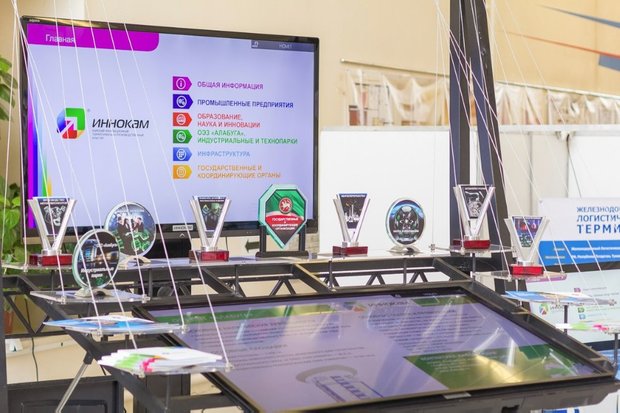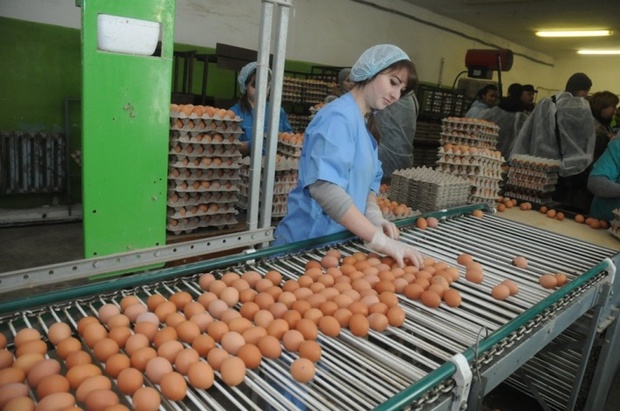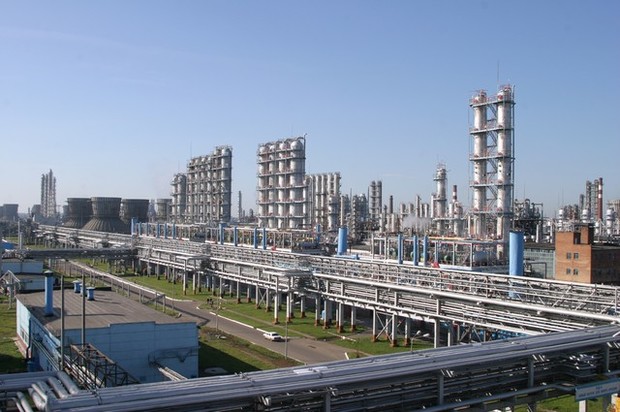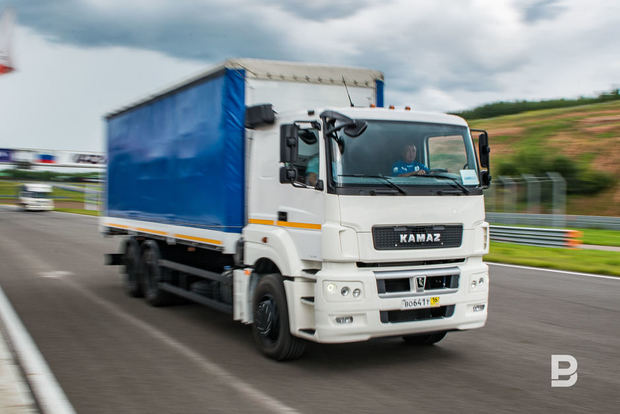‘If KAMAZ starts to focus only on Russian market, it will collapse’
On 24 May, Naberezhnye Chelny summed up the results of international scientific-practical conference 'Partnership for cluster development', which for several years was held by the Ministry of Economy of Tatarstan. The correspondent of Realnoe Vremya, after talking with the director of the Association of clusters and technoparks of the Russian Federation Andrey Shpilenko and the director of the Social development and innovation department of the Ministry of Economic Development of Russia Pavel Svistunov, found out that by the end of the year the Ministry of Trade and Industry may approve the application of Tatarstan to subsidize the food cluster organization. He was surprised to hear that the authorities of the Russia has no plans to create clusters in the regions and the Ministry of Industry and Trade of the Russian Federation is focused primarily on the development of the automative engineering cluster in Naberezhnye Chelny, even if Naberezhnye Chelny will remain the automotive city, despite the diversification that is impossible to do 'in one day'.
There are more than 125 clusters in Russia now: 27 of them are innovation-territorial
Pavel Valentinovich, at what stage is the development of clusters in Russia now, and what are the main challenges they face at the moment?
Pavel Svistunov (hereinafter S.): It is quite difficult to answer this question. Because in Russia there are a huge number of clusters today, and they are at different stages of development. There are such as Innokam, on which now there is a draft decree of the RF government on approval of the cluster Innokam particularly and programmes of its development. The others have been just formed (at this conference their representatives came to me). We can already say that the cluster development has started. It is not only a trend of our country but of the world. Another issue is that there are several areas of cluster development and government support. The Ministry of Economic Development is now implementing institutional support in order the clusters appeared and developed, and our Ministry is trying to develop their programmes specifically for the cluster projects. A synergistic effect is received.
Andrey Shpilenko (hereafter Sh.): It is often considered that the clusters it is what the Ministry of Industry and Trade and the Ministry of economic development said. No. The last ones are those clusters that receive government support, but this does not mean that in Russia there are only 27 innovation-territorial clusters (ITC) or some amount of industrial clusters. In Russia, there have long been formed some sustainable centres, the competences of industrial production, that according to subjective indicators are already de facto clusters! And today, according to such estimates, in Russia there are more than 125 clusters. They include innovation-territorial, as well as industrial and tourist ones. And this figure is not final. The better the economy of the Russian Federation develops, the more naturally formed clusters appear. Even when we're talking about the tools, that the Ministry of economic development of the Russian Federation launched, the Ministry of Industry and Trade of the Russian Federation, we should understand that it is additional financial leverages, including administrative ones, which help these clusters in their development. Now there are 27 of these ITCs, the Ministry of Industry and Trade of the RF in the next few days will announce the inclusion of a number of industrial clusters. And we will learn a certain number of clusters that are supported by the state. But it does not mean that there are no others!

'In Russia there are a huge number of clusters today, and they are at different stages of development.' Photo: kpfu.ru
Tatarstan may introduce a food cluster by the end of the year
Speaking of Tatarstan particularly, today you have six clusters that you have identified. Including chemical cluster, food cluster… Talking about food cluster – probably, the country is still talking about it a little – but I think it is one of the most unique. Because RT currently is the only subject of the Russian Federation, which prepared the documents and already in the 4th month of the current year submitted an application to the Ministry of Industry and Trade of the Russian Federation for receivining subsidies. Today, the application has already been considered by the experts, certain remarks have been clarified, in particular there were comments on the programme of development of the food cluster, which is based on your poultry enterprises. I hope that the Center for cluster development together with the management company of the food cluster of RT will eliminate these remarks, and in the course of the year you will hear about the fact that in Tatarstan there is the first food industrial cluster, included in the register of the Ministry of Industry and Trade of the Russian Federation. This does not mean that other regions do not prepare their applications – but you (Tatarstan — editor's note) have an opportunity to be the pioneer. The thing is that many are afraid to create a food cluster. Because often the number of activities refers to the agricultural products, and many are not willing to compile all documents required by the Ministry of Industry and Trade. In the framework of the industrial cluster – an enterprise producing finished products can apply for subsidies for reimbursement of previously incurred costs on the implementation of joint cluster project, but not on the organization of the cluster itself.
Also, there is an IT cluster. Today in Russia there is no single Ministry that would supervise it or financially support. Tatarstan has already managed to create a certain format. And on the example of RT we can offer a certain model of IT cluster in order to describe what measures of state support are needed. Tatarstan can serve as a kind of pilot project, and then we will have reasons to come to the Ministry of Telecom and say: 'You see, it has been created, it works. And in order to stimulate it, let's there will be a subject for dialogue.' But now there is no such, because there is no critical mass of IT clusters.

'The application for the food cluster is based on the poultry enterprises.' Photo: sdelanounas.ru
'For example, in Innokam, petrochemistry and automative industry create synergy'
Pavel Valentinovich, at the plenary session and later at the round table discussions, the Russian experience was constantly compared with the American, European. We noted that, in particular, in the United States there are the Texas clusters, which diversify the regional economy; the economy of Tatarstan was also compared with the cluster economy of Bavaria. At the same time, in RF and RT there are, as Andrey Viktorovich noted, long formed clusters, which the authorities will have to develop. What foreign experience will your Ministry adopt in the development of clusters and how they are going to plan the placement of the clusters? For example, an IT cluster is needed, and we will open it here...
S.: It is not really like that. The thing is that the government is not planning to create clusters. The government does support the establishment of clusters – but an initiative from below is still necessary. The artificial creation of clusters is necessary for nobody! Because at this conference there was a round table discussion where they discussed the examples of how to create clusters in monotowns – both successful and unsuccessful. That is, among the successful ones – when there is really a powerful company, which wants to diversify its supplier base or to produce new products – then the clusters will be formed around. Another successful method – when there are several companies with different competences, and at the junction they produce a new product. It should be noted that clusters are important not only during the economic recovery, the clusters is a mechanism that helps the economy during a recession – to enter new markets. What cannot be done by one company due to the limitations of competence or experience, several companies can do. For example, in Innokam, petrochemical and automative industry create synergy. A subset of the components are produced for the automotive industry (at petrochemical production — editor's note) or, for example, in Novosibirsk there are the bio cluster and IT cluster, and at the junction there is the development of the IT support of biological products. It is a new direction, products, sharpened for the industry in which nobody works.

In Innokam, petrochemical and automative industry create synergy
There are also unsuccessful examples in monotowns. When they develop what they have. We are engaged in glass — well, we will continue to invest in the development of glass. And the issue of that there is no sales anymore is not considered. They say we are saving monotown and invest in what it is already known for. Well, in the end there are losses. They are not considering the surroundings, not looking for those businesses where their glass would be needed and became part of a new product. Or we have another example: when a large enterprise strangles young suppliers in order to get themselves the best price. Eventually, such situation does not allow suppliers developing, and the latter either will die or look for another niche. And then the large enterprise will use its own facilities to perform these operations.

'If a large number of small and medium enterprises cooperate with KAMAZ, this will lead to improving the quality of manufactured products.' Photo: Maksim Platonov
'If KAMAZ starts to focus only on Russian market, it will collapse sooner or later'
But can it happen that this tool will only aggravate the situation of a single-industry city? Today, for example, we have KAMAZ 'sunk' as a result of the crisis in the automative industry, and when we will have a cluster with many small enterprises, cooperated with KAMAZ, they will 'sink' along with the automative giant, and the cluster itself will 'sink'. As a result, the city will one-industry as it was…
Sh.: It is a double-edged sword. Let's answer the question: 'Why can KAMAZ 'sink'? Because the products may be uncompetitive, for example. How can the products of KAMAZ be competitive? Due to the quality of products and suppliers. If a large number of small and medium enterprises cooperate with KAMAZ, this will lead to improving the quality of manufactured products. And if you will build a chain: the monopoly KAMAZ, and for one supplier to it – this will lead to stagnation, sooner or later. The Ministry of Industry and Trade of the Russian Federation has developed a powerful tool that allows SMEs, that cooperate with KAMAZ, reimbursing incurred costs.
You should also be able to properly administer the state support measures that are being implemented. Tatarstan has shown to all subjects how to administer them. Innokam is a kind of collective image, in the framework of which there is a set of measures of state support: ITC, there can be industrial cluster as well, various infrastructure created under different programmes, where other measures of state support are attracted as well.
But if the mechanical engineering cluster is created, the monotown will be still a monotown! And if KAMAZ collapses, then the SMEs around it will also collapse.
Sh.: How can it collapse?
During a crisis. There was one in 2008-2009, now the second. For example, the market situation, when trucks are not needed in the construction due to the fact that the construction has 'sunk' as a result of the crisis.
Sh.: KAMAZ is a commercial vehicle, it was always bought, is bought and will be bought. You're talking about a certain situation: 'We started to buy KAMAZ less'. But, sorry, KAMAZ works not only for Russia, it works for world markets as well. If KAMAZ starts to focus only on the Russian market, it will collapse sooner or later. As VAZ and others did. KAMAZ should have a powerful R&D and the control of supply system. I have offered top managers of KAMAZ for many times: 'Guys, use the elements of the industrial cluster'.
Summarizing, we can say: your opinion is following – it was an automative city, and let it be an automative city as before?
Sh.: Not exactly. Industrial cluster – one tool. But, according to the international experience, any region should make a decision of diversification. I am ready to agree with you. Let's take the worst — the market collapses. So what? The region has to die? No way. Other mechanisms start to be implemented for that aim. The force solution should be taken at the level of the leadership of Tatarstan – for example, to establish several universities here. My opinion: it is necessary to effectively use the available tools. First, the development of industrial cluster, because there are all conditions for that, and, secondly, to gradually increase scientific potential of the city to diversify the economy. Because you cannot diversify the economy in one day. For diversification there is another tool – the innovation cluster which you are a part of.